Signs of a Gifted Child
From curiosity to genius
Learn how to recognise and support intelligence in your kids and teens.
Unleashing Young Genius
Fun Facts About Children and IQ
Welcome to our page dedicated to children and IQ! Understanding how intelligence develops in children is both fascinating and essential. Here, we share some fun and insightful facts about how young minds grow and flourish. These facts highlight the incredible potential of children and provide tips on how to nurture their cognitive abilities.
Intellectual Development
Provide Challenging Material:
- Offer books, puzzles, and games that
are above their age level. - Enroll them in advanced or honors classes if available.
Encourage Curiosity:
- Answer their questions thoughtfully and encourage them to explore topics of interest.
- Visit museums, science centers, and libraries.
Promote Independent Learning:
- Allow them to pursue independent projects and research.
- Use online resources and educational apps tailored to their interests and abilities.
Seek Special Programs:
- Look for gifted and talented programs, summer camps, and extracurricular activities.
- Consider online courses or dual enrollment in college courses for advanced subjects.
Social and Emotional Development
Foster Social Skills:
- Encourage participation in group activities and team sports.
- Help them find peers with similar interests, such as clubs or interest-based groups.
Support Emotional Needs:
- Be aware of the potential for heightened sensitivity and perfectionism.
- Provide a supportive and understanding environment where they feel safe to express their emotions.
Teach Coping Strategies:
- Help them develop resilience and coping mechanisms for dealing with frustration and setbacks.
- Encourage a growth mindset, emphasising effort and learning over innate ability.
Creative
Development
- Provide materials for art, music, writing, or other creative outlets.
- Support their participation in arts programs, drama clubs, or music lessons.
- Expose them to different cultures, ideas, and perspectives through travel, books, and media.
- Encourage exploration of various fields, such as science, literature, and arts.
Practical Considerations
Regular Communication with Educators:
- Work closely with teachers to ensure they understand your child’s needs and can provide appropriate challenges.
- Advocate for differentiated instruction or individualised learning plans
if necessary.
Balance Structured and Unstructured Time:
- While structured activities are important, also allow time for free play and exploration.
- Encourage hobbies and leisure activities that they enjoy.
Monitor for Burnout:
- Be mindful of signs of stress or burnout from over-scheduling or high expectations.
- Ensure they have time for rest and relaxation.
Parent
Involvement
Stay Informed:
- Educate yourself about the needs and characteristics of gifted children.
- Join parent groups or organisations focused
on
gifted education.
Model Lifelong Learning:
- Demonstrate a love for learning by pursuing your own interests and education.
- Share your experiences and learning
processes with your child.
Celebrate Achievements:
- Acknowledge and celebrate their successes, big or small.
- Provide positive reinforcement and encouragement.
Professional
Support
- If your child experiences social or emotional difficulties, seek support
from a counselor experienced with
gifted children. - Counseling can help them navigate
challenges such as perfectionism, anxiety,
or social isolation.
Did you know?

Brains Grow Fast
A child’s brain develops rapidly during the first few years of life, doubling in size by age two and reaching 90% of its adult size by age five.
Curiosity Leads to Intelligence
Asking questions is a sign of intelligence. Children who ask more questions tend to have higher IQs.
Play is Brain Work
Playtime isn’t just fun; it’s crucial for cognitive development. Games, puzzles, and creative play help boost problem-solving skills and intelligence.
Language Learning Boosts IQ
Bilingual children often show higher levels of cognitive flexibility, problem-solving skills, and IQ scores.
Reading Together Counts
Reading to children regularly from an early age significantly enhances their vocabulary, comprehension, and IQ.
Healthy Habits, Smarter Minds
Proper nutrition, enough sleep, and regular physical activity are essential for brain development and higher IQ.
Music and Intelligence
Learning to play a musical instrument can improve children’s IQ, enhancing memory, attention, and spatial-temporal skills.
Child giftedness is a fascinating and multifaceted domain that captures the extraordinary potential and diverse abilities present in young individuals.
Gifted children often exhibit exceptional intellectual, creative, artistic, or leadership capacities that distinguish them from their peers. Recognising and nurturing these talents is crucial for their development, as it allows them to fully realise their potential and contribute meaningfully to society.
IQ tests are one of the tools used to assess giftedness, providing metrics that help identify exceptional intellectual capabilities; However, these results should be viewed as part of a broader evaluation, as they may not fully capture the entirety of a child’s abilities or potential. Effective support systems, including tailored educational programs and appropriate psychological interventions, play a pivotal role in fostering an environment where gifted children can thrive. Understanding the unique needs and characteristics of gifted children helps in designing strategies that not only enhance their abilities but also address their social and emotional well-being.
What about Teens?
The teenage brain is undergoing significant restructuring, particularly in the prefrontal cortex, which enhances critical thinking and decision-making skills. Proper sleep, around 8-10 hours per night, is essential for cognitive performance and memory consolidation during this transformative period. Additionally, positive peer relationships, physical activities, and engagement with technology all contribute to boosting cognitive abilities and IQ. As the brain continues to develop, teens are particularly receptive to learning and skill acquisition, making this a critical time for intellectual growth.
Educational environments that challenge them intellectually, coupled with opportunities for creative problem-solving, can further support the development of their IQ. It’s also important to recognise that emotional well-being and stress management play significant roles in cognitive development, as chronic stress can impede learning and memory. By fostering a balanced lifestyle that includes mental stimulation, emotional support, and healthy habits, teens can maximise their cognitive potential during these formative years.

Brain Restructuring
During adolescence, the brain undergoes significant restructuring, particularly in the prefrontal cortex, which enhances decision-making and complex thinking skills.

Brain Restructuring
During adolescence, the brain undergoes significant restructuring, particularly in the prefrontal cortex, which enhances decision-making and complex thinking skills.
- Phone:+1 (859) 254-6589
- Email:[email protected]

Sleep and Smarted
Teenagers need about 8-10 hours of sleep each night. Proper sleep is crucial for memory consolidation and cognitive performance.

Sleep and Smarted
Teenagers need about 8-10 hours of sleep each night. Proper sleep is crucial for memory consolidation and cognitive performance.
- Phone:+1 (859) 254-6589
- Email:[email protected]

Peer Influence
Positive peer relationships can boost a teen’s IQ by encouraging learning, collaboration, and new experiences.igner

Peer Influence
Positive peer relationships can boost a teen’s IQ by encouraging learning, collaboration, and new experiences.igner
- Phone:+1 (859) 254-6589
- Email:[email protected]

Learning on the Go
Teens who engage in physical activities, like sports or dance, often show improved cognitive abilities and higher IQ scores.

Learning on the Go
Teens who engage in physical activities, like sports or dance, often show improved cognitive abilities and higher IQ scores.
- Phone:+1 (859) 254-6589
- Email:[email protected]

Digital Natives
Today’s teenagers, who grow up with technology, tend to develop advanced problem-solving and multitasking skills.

Digital Natives
Today’s teenagers, who grow up with technology, tend to develop advanced problem-solving and multitasking skills.
- Phone:+1 (859) 254-6589
- Email:[email protected]

Emotional Intelligence
Adolescence is a critical period for developing emotional intelligence (EQ), which is strongly linked to overall intelligence and social success.

Emotional Intelligence
Adolescence is a critical period for developing emotional intelligence (EQ), which is strongly linked to overall intelligence and social success.
- Phone:+1 (859) 254-6589
- Email:[email protected]

Nutrient-Rich Diets
Diets rich in omega-3 fatty acids, antioxidants, and vitamins can significantly boost brain function and IQ in teenagers.

Nutrient-Rich Diets
Diets rich in omega-3 fatty acids, antioxidants, and vitamins can significantly boost brain function and IQ in teenagers.
- Phone:+1 (859) 254-6589
- Email:[email protected]

